Welcome to Around the World! This week we announce our May/June 2014 edition on Philippine Resilience, examine the international law and politics surrounding Russia-Ukraine relations, and analyze the upcoming European Parliament elections.
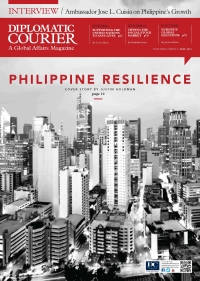 | May/June 2014: Philippine Resilience Six months after Typhoon Haiyan and disaster in the Philippines, Diplomatic Courier announces "Philippine Resilience", our May/June 2014 edition, featuring an interview with HE Jose L. Cusia, Ambassador of the Philippines to the U.S. Don't miss great stories like, “Can You Confront Russia and Save Ukraine?”, “Tipping the Social Stock Market”, and more! Download your copy to your Apple or Android device here! |
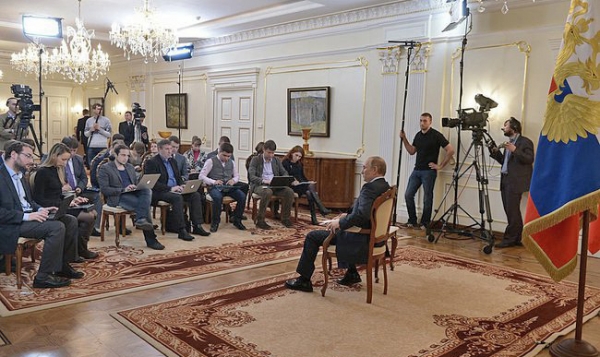 | Political Legitimacy and International Law in Crimea: Pushing the U.S. and Russia Apart Did Russia violate international law in its annexation of Crimea? What does the answer mean for the future of Russia's relationship with the U.S. and EU? Read more about it here. |
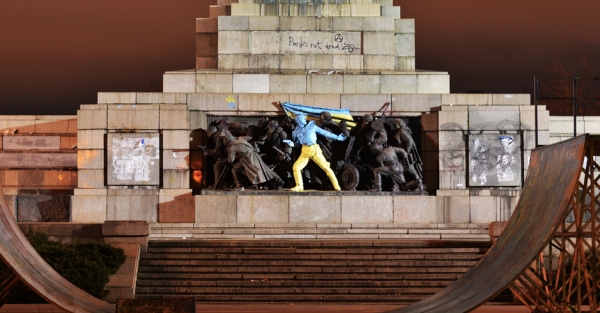 | Can You Confront Russia and Save Ukraine? Ukraine has become Moscow's hostage. The West must remember that Ukraine can have a bright future, but it will never leave Russia’s borders. Read more about it here. |
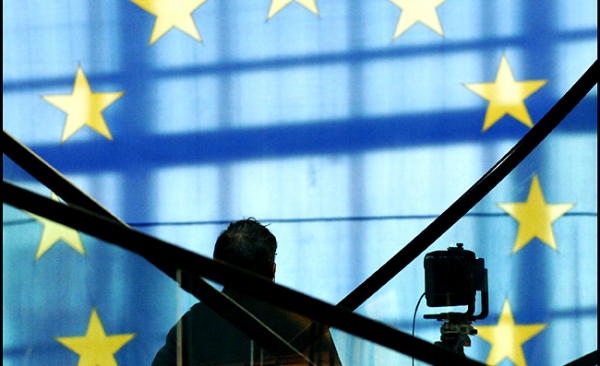 | Europe’s Global Elections: A View from Washington With less than two months before the European Parliament elections, the mood of the European electorate is anything but celebratory. Europe can either close itself off, or open itself up as a partner to areas in upheaval like the Middle East. Read more about it here. |
 | Facing Inward: A UK Perspective on the EU Election With less than a month before voters go to the polls, the European Parliament’s optimistic slogan for the 2014 election—“This time it’s different”—appears to ring hollow in the UK. Read more about it here. |
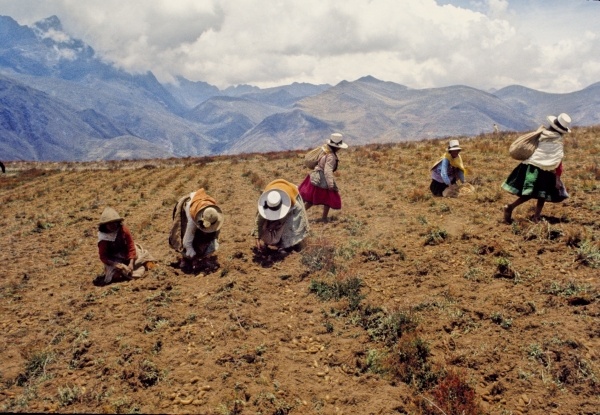 | Live Below the Line: Living on $1.50 per Day What is it like living in extreme poverty? Our managing editor Chrisella Herzog took the Live Below the Line challenge last week to find out, and blogged each day about her experience. Read more about it here. |
Around the Web
As the call to #BringBackOurGirls grew around the world, so did the discussion over whether this particular iteration of "slacktivism" was actually more harmful to the people of Nigeria than helpful. The calls from social media for more U.S. involvement have left many in Washington, DC's halls of power feeling that President Obama's response (sending approximately 10 military advisors to Nigeria) was underwhelming, and that the situation called for "a more muscular response". Jumoke Balogun of Compare Afrique argues that this is exactly the danger of such a viral campaign, and furthermore the "calls for the United States to get involved in this crisis undermines the democratic process in Nigeria and co-opts the growing movement against the inept and kleptocratic Jonathan administration." Marissa Jackson counters that the Nigerian government has utterly failed to protect its people, and as a result, Nigerians themselves have called for this action. "The U.S. seems to be responding to the will of the Nigerian people on an humanitarian basis", she writes at The Guardian. "It is a well-recognised human rights principle that when a state completely fails to protect its people as the Nigerian government has, the world community has a moral obligation to step in."
This Week in History
1962: Venezuelan President Romulo Betancourt outlaws the Venezuelan Communist Party and the Movement of the Revolutionary Left, after the parties allegedly supported a failed military coup d'état. According to some analysts, the move only encouraged the spread of Castroism through Latin American leftists, who embrace illegality in order to take up “armed struggle".


a global affairs media network
Around the World!

May 12, 2014
Welcome to Around the World! This week we announce our May/June 2014 edition on Philippine Resilience, examine the international law and politics surrounding Russia-Ukraine relations, and analyze the upcoming European Parliament elections.
 | May/June 2014: Philippine Resilience Six months after Typhoon Haiyan and disaster in the Philippines, Diplomatic Courier announces "Philippine Resilience", our May/June 2014 edition, featuring an interview with HE Jose L. Cusia, Ambassador of the Philippines to the U.S. Don't miss great stories like, “Can You Confront Russia and Save Ukraine?”, “Tipping the Social Stock Market”, and more! Download your copy to your Apple or Android device here! |
 | Political Legitimacy and International Law in Crimea: Pushing the U.S. and Russia Apart Did Russia violate international law in its annexation of Crimea? What does the answer mean for the future of Russia's relationship with the U.S. and EU? Read more about it here. |
 | Can You Confront Russia and Save Ukraine? Ukraine has become Moscow's hostage. The West must remember that Ukraine can have a bright future, but it will never leave Russia’s borders. Read more about it here. |
 | Europe’s Global Elections: A View from Washington With less than two months before the European Parliament elections, the mood of the European electorate is anything but celebratory. Europe can either close itself off, or open itself up as a partner to areas in upheaval like the Middle East. Read more about it here. |
 | Facing Inward: A UK Perspective on the EU Election With less than a month before voters go to the polls, the European Parliament’s optimistic slogan for the 2014 election—“This time it’s different”—appears to ring hollow in the UK. Read more about it here. |
 | Live Below the Line: Living on $1.50 per Day What is it like living in extreme poverty? Our managing editor Chrisella Herzog took the Live Below the Line challenge last week to find out, and blogged each day about her experience. Read more about it here. |
Around the Web
As the call to #BringBackOurGirls grew around the world, so did the discussion over whether this particular iteration of "slacktivism" was actually more harmful to the people of Nigeria than helpful. The calls from social media for more U.S. involvement have left many in Washington, DC's halls of power feeling that President Obama's response (sending approximately 10 military advisors to Nigeria) was underwhelming, and that the situation called for "a more muscular response". Jumoke Balogun of Compare Afrique argues that this is exactly the danger of such a viral campaign, and furthermore the "calls for the United States to get involved in this crisis undermines the democratic process in Nigeria and co-opts the growing movement against the inept and kleptocratic Jonathan administration." Marissa Jackson counters that the Nigerian government has utterly failed to protect its people, and as a result, Nigerians themselves have called for this action. "The U.S. seems to be responding to the will of the Nigerian people on an humanitarian basis", she writes at The Guardian. "It is a well-recognised human rights principle that when a state completely fails to protect its people as the Nigerian government has, the world community has a moral obligation to step in."
This Week in History
1962: Venezuelan President Romulo Betancourt outlaws the Venezuelan Communist Party and the Movement of the Revolutionary Left, after the parties allegedly supported a failed military coup d'état. According to some analysts, the move only encouraged the spread of Castroism through Latin American leftists, who embrace illegality in order to take up “armed struggle".


